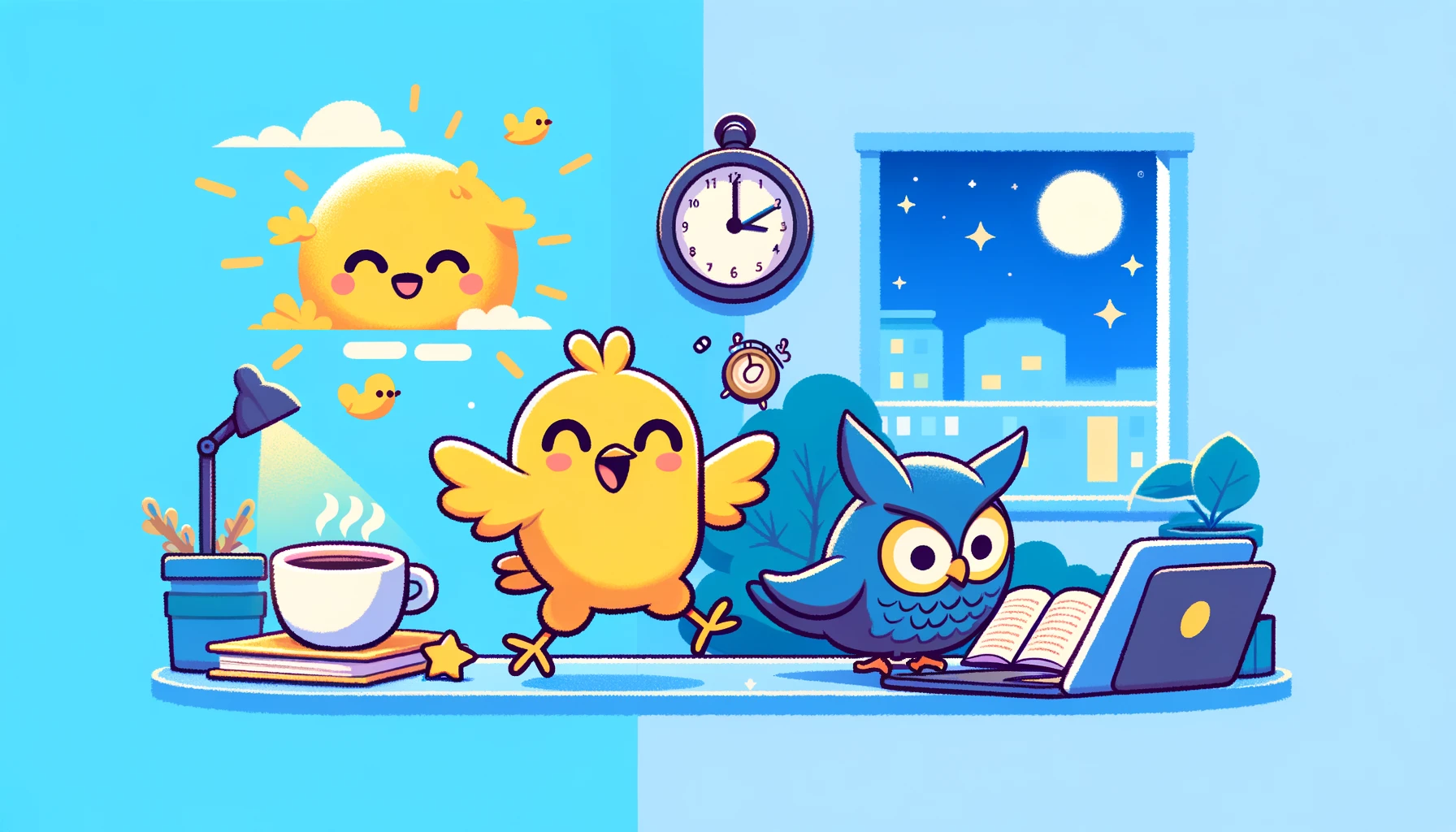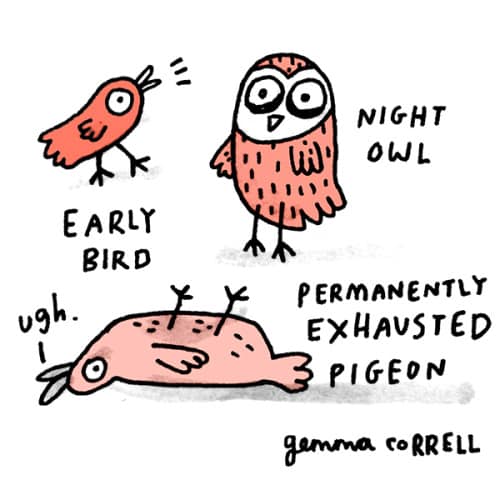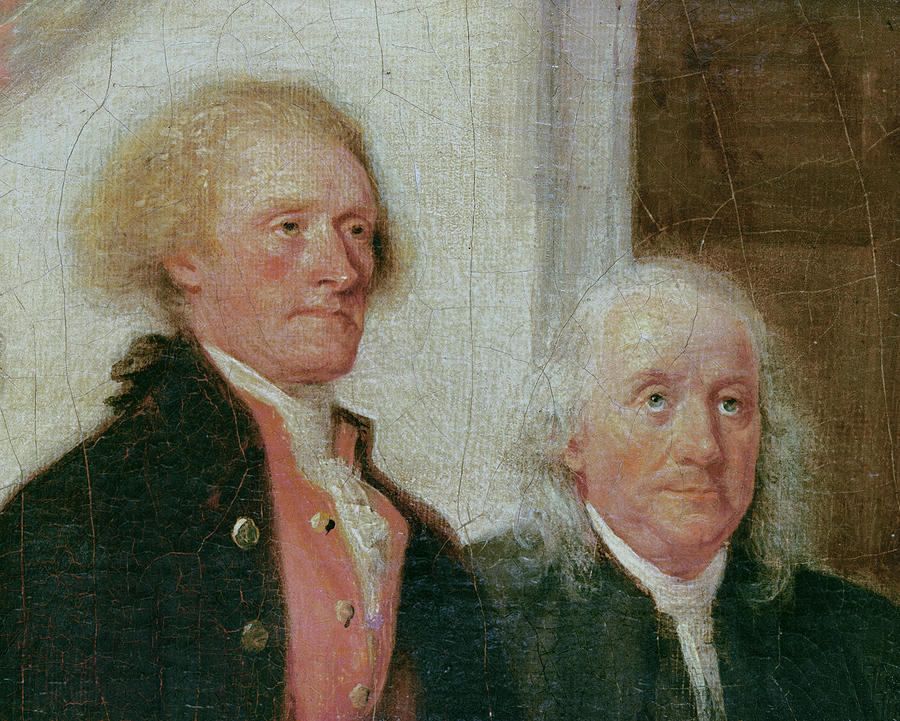
Exploring the age-old debate of whether it’s better to be an early bird or a night owl, we delve into the fascinating realm of sleep patterns and productivity. Understanding the historical context behind these preferences sheds light on their impact on our daily lives. Are you more productive when the sun rises, or do your creative juices flow under the moonlight? Let’s uncover the benefits and drawbacks of each chronotype to help you optimize your schedule for peak performance. Join us as we navigate the intriguing world of circadian rhythms and personal preferences to determine which side of the clock suits you best.
Table of Contents
Understanding Sleep Preferences

Early Birds Explained
Early birds are individuals who prefer waking up early in the morning. Their internal body clocks align with the traditional societal schedule, making them naturally inclined to rise with the sun. This preference offers various benefits, such as improved mental health and overall well-being.
One key advantage of waking up early is the opportunity to start the day with a sense of calmness and tranquility. Early risers often enjoy peaceful mornings, allowing them to plan their day effectively and set positive intentions. Early birds tend to be more proactive and organized, leading to increased productivity throughout the day.
Early birds excel in utilizing the quiet hours of the morning for focused work or self-care activities. By starting their day early, they can accomplish tasks without distractions and set a productive tone for the rest of the day. This approach enables them to tackle important projects efficiently and make significant progress before others even wake up.
Night Owls Unveiled
Night owls are individuals who thrive during late hours and prefer staying up past midnight. These individuals exhibit distinct characteristics that set them apart from early birds. Night owls often experience peak energy levels during nighttime, making them more alert and creative.
Night owls stay up late due to various reasons, including heightened creativity and productivity during nighttime hours. The quiet ambiance of late nights allows them to focus deeply on tasks without interruptions, leading to innovative ideas and solutions. However, this preference for nocturnal activities can lead to challenges in a society that primarily operates during daytime hours.
In a world that follows a morning-centric routine, night owls often face difficulties aligning their natural sleep patterns with societal expectations. The early start times of schools and workplaces can disrupt their circadian rhythms, resulting in sleep deprivation and fatigue. This misalignment can impact their overall well-being and productivity levels during traditional working hours.
Advantages of Being an Early Bird
Boost in Productivity
Early birds seize the morning hours to kickstart their day, maximizing their productivity. By starting early, they can accomplish tasks efficiently and effectively. In contrast, night owls experience a surge in productivity during late hours when the world is quiet.
Night owls may find it beneficial to leverage their peak energy levels at night for tasks that require creativity or focus. To optimize productivity based on your chronotype, consider aligning your most demanding tasks with your peak energy periods.
Advantages of Being a Night Owl
Creativity Peaks
Night owls often find inspiration striking during the quiet hours of the night, fostering a unique environment for creative pursuits. The late-night tranquility allows for deep focus and innovative thinking, leading to artistic breakthroughs. Early birds, on the other hand, experience their creative bursts in the early morning when the mind is fresh and alert.
Creativity knows no time constraints, and individuals can capitalize on their peak creative hours based on personal preferences. Some may find solace in the stillness of the night, while others thrive in the energizing atmosphere of dawn. By understanding one’s optimal creative times, individuals can harness their full artistic potential.
Disadvantages Comparison
Early Bird Challenges
Early birds often struggle with late-night commitments, finding it challenging to stay awake and alert during evening events or social gatherings. This can lead to feelings of fatigue and missing out on important interactions with friends and family. Despite their natural inclination to rise early, early birds may find themselves feeling drained and less engaged during nighttime activities.
To cope with late-night commitments, early birds can try to adjust their schedules by taking short power naps in the afternoon or ensuring they get enough rest during the night. Setting boundaries and communicating their needs to others can also help early birds manage their energy levels effectively while still participating in social activities. By prioritizing self-care and planning ahead, early birds can strike a balance between their natural waking hours and social obligations.
Balancing early mornings with social obligations can be a significant challenge for early birds. While they may excel at starting their day promptly, they might struggle to maintain energy levels throughout the evening. This can result in missed opportunities for networking, bonding with loved ones, or engaging in leisure activities that typically occur later in the day. Early birds must find ways to navigate these conflicting priorities without compromising their well-being or relationships.

Night Owl Drawbacks
Night owls face challenges when it comes to early morning responsibilities, such as morning meetings, school drop-offs, or gym sessions. Their tendency to stay up late can make it difficult for them to wake up feeling refreshed and alert in the morning, impacting their productivity and overall mood. This mismatch between societal expectations of early rising and their natural preference for staying up late can create stress and feelings of being out of sync with the world around them.
To manage morning routines effectively, night owls can implement strategies like gradually shifting their sleep schedule earlier, creating a calming bedtime routine, and optimizing their sleep environment for quality rest. By establishing consistent habits around sleep hygiene and setting realistic goals for waking up earlier, night owls can improve their ability to tackle morning tasks with focus and energy. Embracing small changes over time can help night owls feel more aligned with traditional schedules while honoring their individual preferences.
Overcoming societal expectations as a night owl requires navigating judgments from others who may not understand or appreciate their unique circadian rhythm. Night owls may face pressure to conform to conventional norms around waking hours, leading to feelings of isolation or inadequacy. It’s essential for night owls to advocate for themselves, educate others about their natural tendencies, and seek support from like-minded individuals who embrace alternative sleep patterns. By embracing self-acceptance and advocating for understanding, night owls can thrive in a world that predominantly values early rising.
Scientific Insights into Sleep Patterns
Biological Clocks
Biological clocks regulate our sleep patterns through circadian rhythms, which follow a 24-hour cycle. These rhythms are influenced by external cues like light and temperature. The brain’s suprachiasmatic nucleus controls these rhythms, signaling the body when to feel sleepy or alert.
Our biological clocks play a crucial role in determining whether we are early birds or night owls. Individuals with different chronotypes have varying peak times for cognitive functions, alertness, and physical performance throughout the day. Understanding these patterns can help optimize productivity and overall well-being.
To align with your body’s natural clock, consider adjusting your daily routines accordingly. Early birds may benefit from scheduling important tasks in the morning when they are most alert. Night owls, on the other hand, might find it more productive to tackle tasks later in the day when their energy levels peak.
Impact on Well-being
Your chronotype can significantly impact your mental and emotional well-being. Early birds tend to experience better mood regulation and higher levels of positivity compared to night owls. However, night owls may excel in creative thinking and problem-solving during late hours.
Maintaining well-being based on your sleep preferences involves creating a conducive sleep environment tailored to your chronotype. For example, early birds should ensure they have a dark, quiet space for uninterrupted rest at night. Night owls may benefit from using blue-light blocking glasses to mitigate the effects of screen time before bed.

Professional advice can be valuable in managing well-being related to sleep habits. Consulting a sleep researcher or specialist can provide personalized strategies for improving sleep quality and overall health outcomes. Therapy or counseling sessions can address any mental health concerns exacerbated by irregular sleep patterns.
Optimizing Productivity Based on Sleep Schedule
Tips for Early Birds
Early birds thrive by establishing a consistent morning routine. Waking up at the same time daily helps regulate the body’s internal clock. This consistency enhances alertness and cognitive function throughout the day.
Maximizing early mornings for productivity is key for early risers. Starting the day with important tasks when energy levels are high can lead to increased efficiency. Completing crucial work early frees up time later in the day for relaxation or unforeseen events.
Creating a conducive sleep environment is essential for quality rest among early birds. Maintaining a cool, dark, and quiet bedroom promotes deep sleep cycles. Investing in a comfortable mattress and pillows contributes to overall sleep quality.
Tips for Night Owls
Night owls excel by optimizing late-night hours for tasks requiring focus. Utilizing this quiet period can result in heightened concentration and creativity. Engaging in complex projects during these hours can lead to significant accomplishments.
Transitioning to earlier sleep schedules gradually benefits night owls. Adjusting bedtime by 15-30 minutes earlier each night helps reset the body’s internal clock. Consistency in this adjustment aids in establishing a new, healthier sleep routine.
Incorporating relaxation techniques before bedtime is crucial for night owls seeking better sleep quality. Practicing mindfulness, deep breathing exercises, or gentle yoga can calm the mind and body, preparing them for restful sleep. Avoiding screens and stimulating activities close to bedtime supports a smooth transition into slumber.
Practical Tips for Efficiency
Time Management Strategies
Efficiency in time management can significantly impact your productivity, regardless of whether you are an early bird or a night owl. Prioritizing tasks during your peak productivity times can enhance your performance. For early birds, mornings might be the most productive, while night owls may find evenings more suitable.
Creating a personalized time management system tailored to your sleep schedule and energy levels is crucial. By understanding when you are most alert and focused, you can allocate tasks accordingly. This approach ensures that you tackle complex or demanding activities when you are at your best.
Balancing work and personal life requires effective time management skills. Early birds may prefer completing work-related tasks in the morning to free up their evenings for leisure activities. Night owls, on the other hand, might excel in late-night creative endeavors but must ensure they still get ample rest.
Energy Maximizing Habits
Incorporating energy-boosting practices throughout the day is essential for maintaining high productivity levels. Simple habits like staying hydrated, taking short walks, or doing quick stretches can reinvigorate both early birds and night owls. These practices help combat fatigue and keep your energy levels steady.
Matching activities to your energy levels based on your chronotype is key to optimizing efficiency. Early birds should tackle challenging tasks in the morning when their focus is sharp. Night owls may find themselves more alert and creative later in the day, making it ideal for brainstorming or problem-solving activities.
Taking short breaks at regular intervals can prevent burnout and sustain energy levels throughout the day. Whether you prefer short power naps, meditation sessions, or brief walks outside, these breaks allow you to recharge mentally and physically. Both early birds and night owls benefit from incorporating these rejuvenating pauses into their daily routines.
Adjusting Your Sleep Schedule
Transitioning Tips
Adjusting sleep schedules can be challenging, but with gradual changes, early risers or night owls can successfully shift their routines. Slowly altering bedtime and wake-up times helps the body adapt naturally.
Adapting daily routines is crucial when changing sleep patterns. Incorporating activities that promote relaxation before bedtime can aid in falling asleep faster. Avoiding stimulants like caffeine close to bedtime is also beneficial.
Seeking support from professionals such as sleep therapists or doctors can provide valuable guidance during transition periods. These experts can offer personalized advice based on individual needs and help address any underlying sleep issues.
Maintaining Consistency
Consistency in sleep and wake times is key to maintaining a healthy sleep schedule. Regular bedtimes and wake-up times help regulate the body’s internal clock, promoting better overall sleep quality.
Establishing a regular sleep routine is essential for improved well-being. Creating a bedtime ritual, such as reading a book or taking a warm bath, signals to the body that it’s time to wind down and prepare for sleep.
Overcoming challenges in maintaining consistency with sleep habits may require identifying and addressing potential disruptions. Limiting exposure to screens before bed and creating a comfortable sleep environment can aid in promoting consistent sleep patterns.
Real-life Examples of Successful Early Birds and Night Owls
Historical Figures
Notable historical figures who were early birds
Many historical figures, such as Benjamin Franklin and Thomas Jefferson, were known for their early bird habits. Franklin famously said, “Early to bed and early to rise makes a man healthy, wealthy, and wise.” He believed in the benefits of starting the day before sunrise. Jefferson, on the other hand, woke up at dawn to maximize productivity.

Influential personalities known for their night owl tendencies
Conversely, some influential figures like Winston Churchill and Charles Darwin thrived as night owls. Churchill, a renowned British Prime Minister, worked late into the night on critical wartime decisions. Darwin, the father of evolutionary theory, found his creative peak during nighttime hours.
How different chronotypes influenced historical figures’ achievements
The diverse chronotypes of historical figures showcase how personal routines can impact achievements. Early birds like Franklin excelled in structured tasks during morning hours. Night owls like Churchill found inspiration and focus during late-night solitude. Understanding one’s chronotype can optimize productivity and creativity.
Contemporary Success Stories
Modern-day leaders who attribute success to being early risers include Tim Cook, CEO of Apple Inc., known for starting his day at 4:30 am. This routine allows him to tackle strategic decisions before the workday begins. Similarly, Michelle Obama, former First Lady of the United States, emphasizes the importance of early mornings for self-care and reflection.
Success stories of individuals thriving as night owls highlight the accomplishments of figures like Elon Musk, CEO of Tesla and SpaceX. Musk is known for his nocturnal work habits, often sending emails well past midnight. Another example is Marissa Mayer, former CEO of Yahoo, who attributed her innovative ideas to late-night brainstorming sessions.
Balancing work and personal life for success regardless of chronotype is exemplified by individuals like author J.K. Rowling, who managed writing Harry Potter books while raising children as a single mother. Her dedication transcended traditional sleep patterns, showcasing that commitment and passion can lead to success irrespective of one’s preferred sleep schedule.
Making the Best of Your Natural Tendency
Embracing Your Inner Clock
Embracing your natural sleep preferences involves acknowledging whether you are more productive in the morning or at night. Understanding this can help you plan your day effectively. By recognizing your chronotype, whether early bird or night owl, you can align tasks with your peak energy times.
When it comes to leveraging your chronotype for optimal performance, consider structuring your day around your most productive hours. Early birds may find it beneficial to tackle complex tasks in the morning, while night owls might excel at creative endeavors later in the day. Adapting your schedule to suit your natural tendencies can significantly enhance productivity.
Finding harmony between your internal clock and external demands is essential for overall well-being. It’s crucial to strike a balance between meeting work or social obligations and honoring your body’s need for rest. By prioritizing quality sleep and aligning activities with your chronotype, you can optimize performance and maintain a healthy lifestyle.
Balancing Lifestyle and Work

Integrating personal chronotype into work-life balance strategies can lead to increased efficiency and job satisfaction. Employers are recognizing the importance of allowing flexibility in work schedules to accommodate diverse sleep patterns. By communicating your preferences and needs, you can create a more harmonious work environment.
Setting boundaries to protect personal time based on sleep preferences is key to maintaining a healthy balance. Whether you thrive in the early hours of the morning or late at night, establishing clear limits on work-related activities during non-peak times can prevent burnout and improve overall well-being. Prioritizing self-care is crucial for long-term success.
Achieving harmony between lifestyle choices and career demands involves aligning your daily routine with your natural tendencies. For early birds, starting the day with exercise or mindfulness practices can set a positive tone for the rest of the day. Night owls may benefit from incorporating relaxation techniques before bedtime to ensure restful sleep.
Summary
You’ve explored the advantages and disadvantages of being an early bird or a night owl, gaining insights into optimizing productivity based on your sleep schedule. Understanding your natural tendencies can help you adjust your routine for maximum efficiency. Real-life examples have shown that success can be achieved regardless of whether you rise with the sun or burn the midnight oil. Making the best of your sleep preferences involves tailoring your habits to suit your body clock and lifestyle, ensuring you work at your peak performance.
Now that you understand the benefits of aligning your activities with your natural sleep tendencies, take proactive steps to optimize your productivity. Experiment with different strategies, observe how they impact your performance, and fine-tune your routine accordingly. Embrace your unique sleep pattern and leverage it to achieve success in both your personal and professional endeavors.
Related Article:
Featured Image courtesy of DALL-E by ChatGPT
